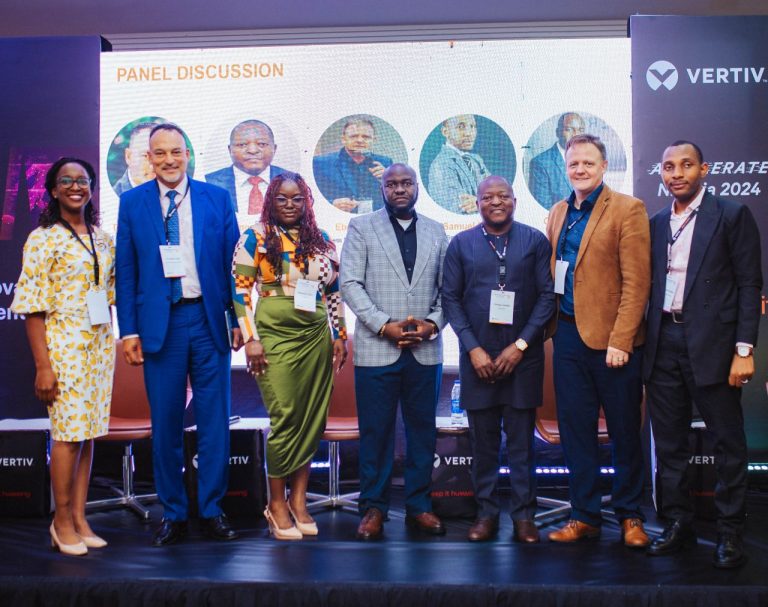Speakers at the Vertiv Accelerate 2024 event, which was themed ‘Exploring the Innovation of Modern Datacenters’.
As businesses globally grapple with managing vast amounts of data across increasingly distributed environments, the need for agile and responsive infrastructure has never been more pressing. West African businesses, however, are facing additional challenges, including unstable power supply and rising operational costs, all of which complicate efforts to manage and optimize data.
Gbenga Adebowale, Enterprise Sales Director for Central Africa at Vertiv, emphasized these difficulties during his address at the West African leg of Vertiv’s ‘Accelerate’ event. Held for Nigerian and Ghanaian organizations, the event explored how local businesses face the same data management challenges as their global counterparts while also navigating specific regional obstacles.
“Part of the solution lies in leveraging intelligent infrastructure, which enhances efficiency, simplifies complexity, and accelerates data management,” Adebowale stated. He highlighted that the region’s enterprises must adopt innovative solutions to address these hurdles.
Global survey highlights universal data center concerns
Eben Owen, Senior Business Director for Anglophone Africa at the Uptime Institute, reinforced Adebowale’s points, citing key findings from the Uptime Institute’s 14th Annual ‘Global Data Center Survey’. This comprehensive survey, the longest-running of its kind, garnered responses from over 850 data center owners and operators worldwide, alongside nearly 700 vendors and consultants. Approximately 10% of respondents hailed from Africa, with significant participation from North America, Latin America, and Europe.
The survey revealed widespread concerns about energy performance, staffing shortages, and sustainability regulations, which were noted as top priorities for data center managers globally. Owen observed, “Digital infrastructure managers are now primarily focused on improving energy efficiency and addressing staffing shortages. With governments worldwide approaching carbon reduction deadlines, energy use regulations are a major area requiring urgent attention and investment.”
The report also highlighted a reluctance to embrace public cloud solutions for mission-critical applications. Data security concerns were identified as a key factor, with 65% of respondents reporting that they do not host mission-critical applications in the public cloud. Many prefer to maintain control over their infrastructure by operating their own data centers, believing that this approach reduces the likelihood of outages compared to public cloud providers.
Owen noted that the challenges facing African data centers are closely aligned with global trends. “The issues we see in Africa mirror those that are being tackled on a global scale,” he said.
Local data center market poised for growth
The growth of Nigeria’s ICT sector, driven by industries such as oil and gas, financial services, and fintech, is creating new opportunities for data centers. The advent of 5G and advances in cloud infrastructure are expected to fuel significant expansion in the data center market, with projections estimating it will reach USD 646 million by 2030, up from USD 250 million in 2023.
Similarly, Ghana’s ICT services market has seen steady growth, contributing to the broader economic development of the country. The sector, valued at approximately 1.5 billion Ghanaian cedis (about USD 95 million) annually, is expected to continue its upward trajectory.
“These developments underscore the growing demand for data center infrastructure in West Africa,” Adebowale remarked. “Vertiv is committed to addressing the critical challenges faced by today’s data centers through a comprehensive suite of power, cooling, and IT infrastructure solutions.”
